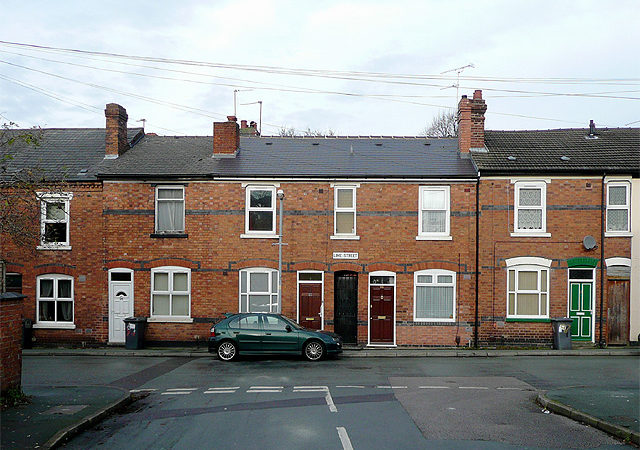Does Boris Johnson really want to use the bedroom tax, against families of essential workers who’ve given their lives in the fight against Covid-19?

Fighting against the bedroom tax was one of the issues on which I cut my teeth as leader of the Green Party.
I’d been in that position for less than a year in 2013 when the government announced its plans, and around the country, it was at the top of the political agenda. I remember particularly a fiery public meeting in Norwich – the sweariest I have ever been to — where anger was almost boiling over.
Judges ruled it unlawful and discriminatory, in the Court of Appeal (2016) and the European Court of Human Rights (2019).
It failed in its avowed aim of freeing up housing – only 6% of those affected move home, often because there’s no other size of housing available.
What it has “achieved” is forcing the affected to cut back on essential food and energy spending instead.
Yet with so many issues to fight, so many disastrous impacts from ideologically driven austerity, it has almost fallen off the political agenda.
But not out of people’s lives.
When I posted this week on Facebook “remember the bedroom tax”, I immediately heard a dreadful tale of how a family carer, living in a specially adapted home, was hit by the policy. His own ill-health forced his disabled daughter to move to a supported facility – leaving him “only” caring for his wife.
Over 320,000 people in social housing are still losing an average of £15.41 a month due to the Bedroom Tax, as of March last year.
In the age of Covid-19, it is time to revive the attack on this disastrous policy – which like so many aspects of austerity has left us highly vulnerable to attack from this microscopic bundle of protein – and to enormous economic and social impacts from it.
Where people have been able to move home, it has produced overcrowding – two children having to share a bedroom. That means also less space throughout the home – a two-bedroom home generally has less space in all areas than a three-bed.
If someone in a household needs to self-isolate, there is, literally, nowhere to go, and even maintaining space between people in a room becomes more difficult.
As well as increasing the chances of transmission of Covid-19, the likely impacts on mental health and wellbeing – even the availability of space to exercise – is obvious.
There’s great concern too about the impact of the coronavirus on education, particularly inequality. Contrast a 15-year-old in a large, comfortable home to a young person of the same age sharing a bedroom with a sibling. There’s no doubt who has a greater chance of keeping up their schooling.
When I put these points to the government this week, I got something of a concession: “It can be an issue when people are in small houses with a large number of people self-isolating”.
That’s more substantive than many responses we’re getting right now on many issues from the government. But it is not, of course, a promise of action.
My ideal action would be the immediate abolition of the bedroom tax. But, knowing this government, I have proposed to it something smaller and simpler, but easily implementable.
People making new claims for the housing element of universal credit have 13 weeks’ grace period before it applies.
Given that it is clearly currently impossible for people to even look for different housing and move house (leaving aside the availability question), surely that should be extended for the length of the crisis?
And there’s another group for whom there is surely reason for action on compassionate grounds.
Where a member of a household has died, there is a one-year grace period before the bedroom tax kicks in. Again, people so affected cannot move now.
But more, they are facing a difficult personal time, under all of the stress of the lockdown. Surely the implementation of the bedroom tax could be at least delayed?
That provokes, however, another thought about another year’s time.
Then some relatives of medical workers, carers and other essential workers will come up to the first year anniversary of the loss of their loved one from Covid-19, and face being hit by further poverty because of the bedroom tax.
People who gave their lives to fight the virus, their families will be penalised as a result.
Does Boris Johnson really want to do that to people like those who have just helped save his life, and many others?
Natalie Bennett is a member of the House of Lords, former leader of the Green Party of England and Wales and a contributing editor of Left Foot Forward.
Left Foot Forward doesn't have the backing of big business or billionaires. We rely on the kind and generous support of ordinary people like you.
You can support hard-hitting journalism that holds the right to account, provides a forum for debate among progressives, and covers the stories the rest of the media ignore. Donate today.




3 Responses to “The Tories want you to forget about the Bedroom Tax – but it’s still hurting people”
The Tories want you to forget about the Bedroom Tax – but it’s still hurting people – LeftInsider
[…] Left Foot Forward […]
The Tories want you to forget about the Bedroom Tax – but it's still hurting people - StanKaba
[…] TO READ FULL STORY Clik Here! […]
Tory ministers refuse to halt Bedroom Tax during pandemic | Govt Newspeak
[…] The Tories want you to forget about the Bedroom Tax – but it’s still hurting people […]